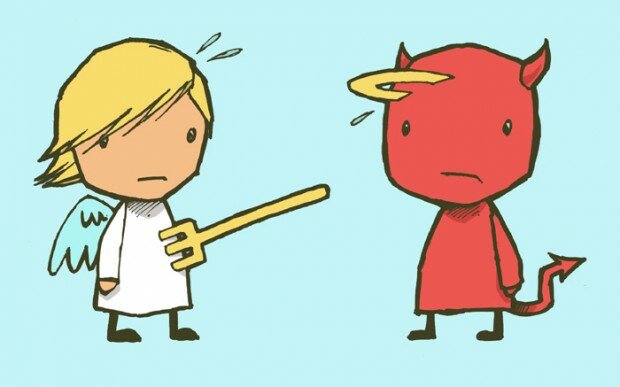Although we love to view the world in absolutes, things are seldom black and white. Heroes have skeletons in their closets and assholes secretly donate money to the ASPCA commercials with Sarah Mclachlan.
Okay, maybe not.
But the point is that the world is a complex place, full of moral ambiguity, double standards and mixed feelings.
So we have taken the task upon ourselves to bring back the epic binary of “good” versus “bad,” “right” versus “wrong,” and “virtuous versus “evil.”
We humbly present to you: Asshole and Hero of the week.
Asshole(s): Ferguson Police Department

Via: timedotcom.com
Michael Brown allegedly stole some cigarillos from a liquor store and was walking down the street with his friend Dorian Johnson. They were stopped by police officer Darren Wilson who ordered them on the ground. A scuffle ensued, Wilson got hit in the face, and within minutes, Brown was shot at least six times. He was unarmed.
No one really seems to know what happened. Is this a hate crime? Racial profiling? Probably. You shouldn’t get shot for stealing cigarillos or jaywalking. The emphasis on Brown’s supposed shoplifting conveys the Ferguson Police Department’s desperate attempt to divert attention from their murderous violence to a petty crime.
Protests have erupted all across the nation, but especially in Ferguson. In reaction, Ferguson police have embarked on all kinds of crazy antics, including using tear gas to quell the crowds, macing a reporter, detaining journalists and threatening to shoot a cameraman.
Serve and protect. Mmmmkay.
Hero: Dr. Robin Carhart-Harris and company

Via: independent.co.uk
For the first time since its ban in the seventies, LSD is being researched on human subjects in the United Kingdom for its therapeutic potential, particularly in regard to the treatment of substance abuse.
Examining MRI images of the brain under the influence of LSD reveals the complex workings of this powerful psychedelic. Heading this research is Dr. Robin Carhart-Harris of Imperial College, London, who theorizes that LSD might help in re-wiring the pattern of brain function that is receptive to addiction: “It’s slightly hypothetical, but it’s based on what we know about the way the brain works, which is that it settles into configurations of activity that seem to underly certain psychopathologies…Depression and addictions rest on reinforced patterns of brain activity, and a psychedelic will introduce a relative chaos. Patterns that have become reinforced disintegrate under the drug. I’ve used the metaphor of shaking a snowglobe.”
This hypothesis not particularly surprising in lieu of the research on the psychedelic alkaloid ibogaine in treating opiate dependence. Yet despite all the positive findings as well as its unpopularity as a recreational drug, ibogaine is still hugely stigmatized and remains a schedule 1 substance (“no accepted medical use”).
The War on Drugs can be blamed for several decades worth of misunderstanding, misinformation and fear regarding psychedelics, despite their medical potential. I will not embark on a diatribe on the sociopolitical implications of this issue. Instead, I will merely state that Carhart-Harris’s research on LSD is shedding light on how the drug actually works and the ways in which it can better the lives of people suffering from substance abuse.
Research, scientific method, truth — these powerful yet simple notions should outweigh scare tactics and propaganda every time.
As we remember Albert Hoffman, we must salute Robin Carhart-Harris.

Featured photo courtesy of: freep.com





